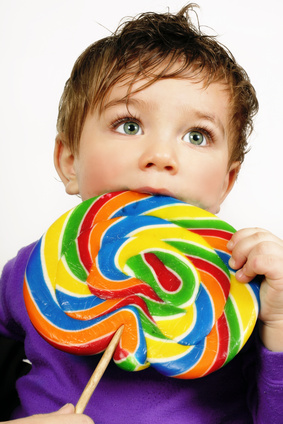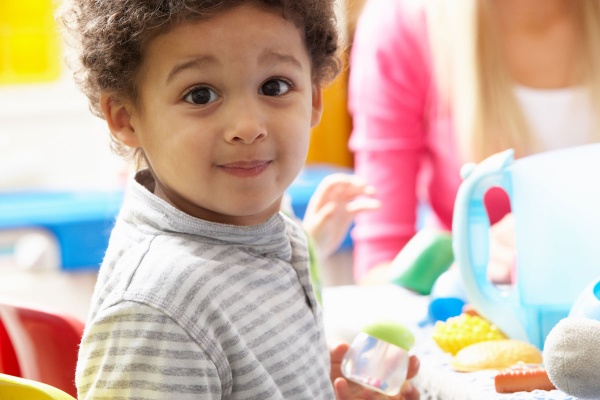
Hardwired to Love a Sugar High
I totally appreciate the intent behind the healthy trick-or-treating at Open Streets in The Grove over the Halloween weekend.  Organizers are all about promoting physical activity by closing city streets to cars and opening them for pedestrians and cyclists. The kids loved the bubble machines, food trucks, games and flash mob dancing to Thriller along Manchester Avenue.
Organizers are all about promoting physical activity by closing city streets to cars and opening them for pedestrians and cyclists. The kids loved the bubble machines, food trucks, games and flash mob dancing to Thriller along Manchester Avenue.
But although they were OK with receiving apples, clementines and raisins, what they really wanted was sugar. The more, the better. Those little ghosts and ninjas are biologically hardwired to love sweets, and it doesn’t really matter what we adults do to try to redirect them.
Scientists think that children’s ability to eat copious amounts of sugar is related to the hormones in their growing bodies. In fascinating studies, they’ve found that most kids don’t really have an upper tolerance for sweetness – unlike adults, who tend to hit a point at which a beverage will simply taste too sweet. However, adolescents who have stopped growing max out on sweetness, just like adults.
Since hearing about this research, I’ve rethought my approach to sugary foods. I’m no longer so worried that my kids will develop a lifelong sweet tooth if we have donuts for breakfast or if they binge on Halloween candy for a few days. On the other hand, I’m very conscious about refined sugars in the foods and drinks we have at “real” meals. This is where most of the hidden calories lurk.
The average American eats 22 teaspoons of sugar a day, when the recommendation is six teaspoons for women and nine for men. When we’re binging on our kids’ Halloween candy, this is understandable. But most of it comes from our routine diet, especially soft drinks, sweetened juices and other foods with huge amounts of sugar added in, like breakfast cereals.
The average teen (almost unbelievably) eats 34 teaspoons of sugar a day. The cause may be a combination of growing bodies – those sugar cravings are still biologically driven – and the age-appropriate autonomy teens’ parents give them to choose their own foods.
Encouraging young people to burn off those calories through active lifestyles is great, and for that I commend organizations like Trailnet and other supporters of Open Streets. However, informing kids early on about what’s actually in their food could be more productive in the long run – it could equip them to avoid hidden sugars when they get older.
Several government agencies are trying this approach at Nutrition.gov, where interactive learning materials aimed at teens and tweens teach them about healthy choices as well as the critical thinking skills they need to decipher media messages about food.
Halloween is a great opportunity for kids and parents to start reading ingredient lists, serving sizes and calorie counts. Talk about how much sugar is in that candy. Donate it, trade it or let them eat it – but explain your decision to your kids in ways that will help them understand why they love sugar and why you don’t want them to get too much of it.
By Amy De La Hunt, Health Blogger for SmartParenting

Amy De La Hunt is a journalist and editor who lives in the St. Louis metro area and works across the country as a writer, copy editor, project manager and editorial consultant on everything from fiction books to monthly magazines to blog posts. When she's not chauffeuring her teenage sons to activities, Amy is an enthusiastic amateur cook, landscaper, Latin dancer and traveler. Follow Amy on Instagram @amy_in_words





















